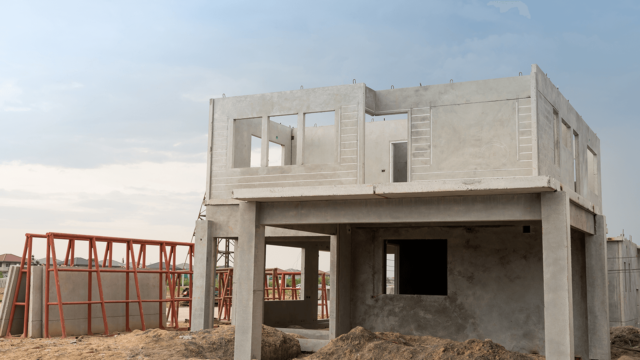What you need to know before you build in Kenya
Understanding the policies and regulations in place for those thinking of building could ultimately save one time and money.

“Five-storey building collapses in Uthiru; Unknown number of people trapped after building collapses in Bungoma; A storey building under construction collapses in Nairobi at night; Building collapses, leaving two injured in the city centre…”
These are some of the headlines that have made national news in the recent past across Kenya. Some of the collapsed buildings have left Kenyans homeless, while others, which were business premises, have robbed the owners of their livelihoods.
These incidences, which have become rampant, have sparked concern about standards surrounding buildings in Kenya and led to raised questions: Are there policies and regulations in place for those thinking of building, and are they being followed?
Permits are a crucial part of building as they ensure that each project is inspected and approved by the right professional bodies. They also ensure that people don’t cut corners when building.
The right professional bodies, such as the National Building Inspectorate Department (NBI), must verify that you have met the minimum requirements of health and safety. Under the State Department for Public Works, the NBI is mandated to comprehensively audit all buildings, including those under construction. It also:
- Profiles buildings that do not meet the standards for construction and those built without the necessary approvals on account of lack of title deeds.
- Assesses buildings to determine their suitability for habitation or removal through a multi-sectoral approach: After collaborating with other stakeholders, such as the National Environment Management Authority (NEMA), the NBI will determine whether a building is suitable for habitation or needs to be demolished.
- Immediately demolishes (or should demolish) all buildings and structures that do not meet established standards for habitation.
- Regularises buildings that meet construction standards but do not have the necessary approvals.
- Arrests and prosecutes imposters masquerading as Ministry of Land, Housing and Urban Development officials.
Before you break ground, there are mandatory construction approvals that you must obtain. These include a National Council Authority of Kenya (NCA) project registration, NEMA Approval, Structural Plan Approval by the County Council and Architectural Plan Approval. These approvals hold validity for two years.
To begin the process, you must consult a registered surveyor to obtain a survey plan, which acts as the official document that delineates the boundaries of your land. Further, as evidence of ownership of the land earmarked for development, you need to present the surveyor with a title deed, after which you’ll receive the survey plan.
Once you have secured the survey plan, you must enlist the services of a certified environmental expert, who will compile a project report that must be submitted to NEMA.
All businesses must secure approval from NEMA according to the Environmental Management Coordination Act, 2009.
“This statute was passed into law and led to the creation of NEMA, which is charged with the responsibility of enforcing environmental management. This also includes ensuring that developments in the course of building in Kenya are not harmful to the environment and ensure that developers mitigate on harmful untoward effects to the environment due to construction of their buildings,” according to an article published in Adroit Architecture.
This process is initiated by the engineer or contractor overseeing the project, who submits architectural drawings to the county government for approval. Once the architectural plans have been approved, the architect submits the hard copies for official stamping and approval by the county government. After this, your contractor must register your project with the National Construction Authority (NCA), which will issue you with a compliance certificate.
The NCA will then conduct a site inspection to verify compliance with the approved plans and environmental clearance, after which it will generate and issue you with an invoice. After submitting payment, you will receive a certificate of compliance that is valid for 90 days. During this period, if there are no violations, you will be issued a final compliance certificate. The approval process usually takes around seven days.
Before you enter any contractual agreement or begin construction, ensure you have a trustworthy team. Do due diligence by evaluating your contractor’s and architect’s capabilities. Get a team that will help identify potential risks and ensure compliance with regulations for a sound building.
